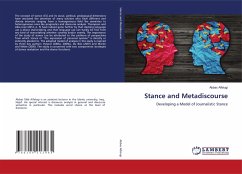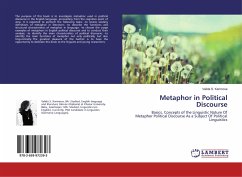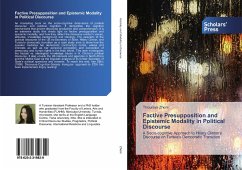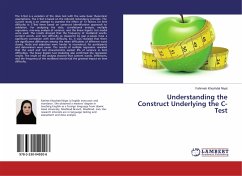
Stance and Metadiscourse
Developing a Model of Journalistic Stance
Versandkostenfrei!
Versandfertig in 6-10 Tagen
41,99 €
inkl. MwSt.

PAYBACK Punkte
21 °P sammeln!
The concept of stance (CS) and its social, political, pedagogical dimensions have attracted the attention of many scholars who have different and diverse interests ranging from a homogeneous field like semantics to heterogeneous ones like pragmatics and discourse analysis. Thompson and Alba Juez (2014, p. 5) have indeed gone further by that claiming language use is about stancetaking and that language use can hardly be free from any kind of stancetaking whether covertly and/or overtly. The importance of the study of stance can be attributed to the plethora of perspectives from which stance or ...
The concept of stance (CS) and its social, political, pedagogical dimensions have attracted the attention of many scholars who have different and diverse interests ranging from a homogeneous field like semantics to heterogeneous ones like pragmatics and discourse analysis. Thompson and Alba Juez (2014, p. 5) have indeed gone further by that claiming language use is about stancetaking and that language use can hardly be free from any kind of stancetaking whether covertly and/or overtly. The importance of the study of stance can be attributed to the plethora of perspectives from which stance or "the expression of personal opinion" is directly or indirectly alluded to. The adopted model of analysis in this study is inspired by three key authors: Hyland (2005a, 2005b), Du Bois (2007) and Martin and White (2005). The study is concerned with two components: strategies of stance realisation and the stance functions.












